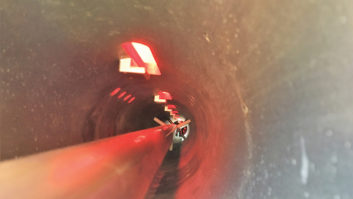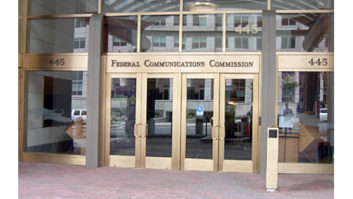WASHINGTON — A year ago, the National Association of Broadcasters released a video explaining the implications of the channel repack that nearly 1,000 U.S. TV broadcasters are undergoing after the spectrum auctions. The video was designed to inform the public about a complex, dangerous project and how difficult it would be to complete within the 39 months provided by the FCC. In addition to the financial burdens, it emphasized the technical and logistical challenges faced by tower companies.
“There’s no easy template for this work,” a spokesman in the video said. “It’s hard, expensive and dangerous. There are only a handful of companies in America that can do it safely, and there are nearly 1,000 stations to be moved. Unfortunately the math doesn’t add up. Stations are being forced to move without the time and money to do it successfully.”
We are now seeing some potentially tragic results that could come with a deadline that many warned was unreasonable. Last month, Steve Lemay, owner of a Washington-based tower company was killed and three of his crew members were injured when the 1,980-foot tower for Ozarks Public Television station KOZK-TV in Fordland, Mo., collapsed. TV Technology extends our condolences to Lemay’s family and colleagues over this terrible accident.
[Tower tech rappels down in Mississippi.]
Lemay was working on a $3.4 million project to repack KOZK’s channel from 23 to 16. Lemay and his crew were only 100 feet up the tower, attempting to reinforce the structure when the accident occurred. At press time, the station has returned to cable and satellite and is broadcasting on a limited temporary site.
Lemay is the fourth tower worker to lose his life working on a broadcast tower since channel repack work commenced a year ago. In September, three members of a tower crew lost their lives while working on a 1,250-foot TV tower in Miami Gardens, Fla. It has since been confirmed that both the Miami Gardens and Fordland accidents were a result of work done on the repack. To put this into perspective, there were eight tower deaths in 2017 (three which resulted from repack work), and two so far in 2018 (one from repack work), while in 2016, there were seven overall, according to wirelessestimator.com.
Lemay was considered a consummate professional by his peers and had 25 years’ experience in the tower business; the accident is under investigation so we don’t yet know what was the cause. However, what we do know is that despite tower crews taking all the necessary safety precautions, four deaths have occurred in less than a year due to this work and it may be time for the FCC to reconsider its timeline. We may never be able to say directly that a rushed repack schedule played a role in these tragedies; but any responsible observer could conclude that it’s possible — and that taking more time in this process in the interest of safety is the prudent course. Although some funding has been added to the repack budget earlier this year, the commission should also look into extending the deadline to allow for more flexibility in scheduling tower work before more workers get injured or lose their lives.
“The concern a lot of people have about the repack is that the timeframe is based on everything going right,” Iowa Public Television Director of Engineering and TV Technology contributor Bill Hayes told Current. “The fact is, there are so few crews that are capable of doing this work safely and they’re going to be stretched thin. Something has to give and the hope is that what’s going to give is the timeline.”
Hayes added that without extensions to the schedule, “you can be gambling at best with the reliability of your station’s service, and at worst you’re gambling with people’s lives.”
We couldn’t agree more. OSHA ranks tower work as “the most dangerous job in America.” It’s up to the FCC to consider that fact and reevaluate its repack deadlines.









